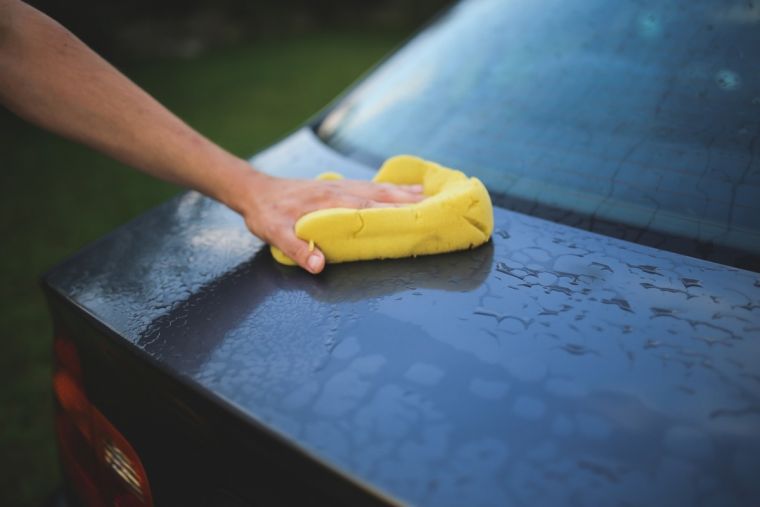Modern slavery: How the church can get behind the victims
All across our world the tragic and barbaric slave trade continues in ever increasing numbers. Men and women, boys and girls are coerced into modern slavery without as much as a second thought for their welfare or futures. Working across international borders, human traffickers continue to rake in the profits. Children and adults are being exploited for sex, domestic servitude, forced labour, criminal activity and even organ harvesting.
Today is World Day against Trafficking in Persons. It's an opportunity to send a message to all those guilty of this abhorrent crime that enough is enough. Modern Slavery robs victims of dignity and their futures. Globally, the sheer scale of the problem is shocking.

Recently released figures from the Australian based Walk Free Foundation revealed that there were 40.3 million people living in modern slavery in 2016 and 70 per cent were women and girls. The three countries with the highest prevalence of modern slavery are North Korea, Eritrea and Burundi and each of these three countries has high levels of state-imposed labour.
But modern slavery is a problem in the UK, too. The estimate of how many people are trapped in modern slavery here is now 10 times higher than previously thought. It used to be estimated that there were between 10,000 and 13,000 trapped in modern slavery in the UK. But now that figure has sky-rocketed to a staggering 136,000.
That's thousands of people – adults and children – here in the United Kingdom who are in some form of modern slavery. At car-washes, on high streets and in local communities the problem of modern slavery in this country seems to be getting worse.
Clearly, standing by and doing nothing is simply not an option. As a Christian, I know God cares for the vulnerable, the downtrodden and he calls his people to make a difference.
Today is a chance to re-dedicate ourselves to taking a stand. Some are working directly with victims to ensure they are looked after once they escape. Others are co-ordinating rescue missions. Still others, like CARE, are working with policy makers to make sure our laws are as strong and as effective as possible. But all of us have a role to play. Whether it's supporting anti-trafficking charities financially or educating ourselves on what to look out for and what to do if you suspect there's a victim in your area.
It's also true to say that the UK has taken considerable steps to sort out the issue of modern slavery. From John O'Groats, to Belfast, Cardiff and Lands' End, all four constituent parts of the United Kingdom have dedicated anti-trafficking laws in place. The Modern Slavery Act covers England and Wales and there's little doubt it represents a major moment in the fight against modern slavery.
But clearly the statistics tell us that far more needs to be done. At CARE we think one area where we need to improve on the status quo is the matter of providing adequate support for persons rescued from modern slavery.
When a person escapes from modern slavery, they need help and most of all, they need security and stability and they face the uncertainties of the future. In Scotland and Northern Ireland, victims of human trafficking are entitled to statutory support and help. But this is not the case in England and Wales.
Clearly, this needs to change. That's why CARE is privileged to be part of the Free for Good campaign which is devoted to improving victim support across England and Wales. As such, along with our friends at Free for Good we've been working with two outstanding politicians, Lord McColl and Frank Field MP in order to persuade the government to back the Modern Slavery (Victim Support) Bill. This legislation has already been through the Lords and is now in the Commons.
It would significantly strengthen the victim support currently available in England and Wales. It would help protect victims from homelessness, destitution and re-trafficking. It would give victims a direct pathway to recovery. It would ensure a higher standard of care is made available. It would also bring the law in England and Wales into line with Scotland and Northern Ireland.
If the Government would back the bill and adopt it as official policy, what a signal that would send to some of the most vulnerable across our society. It would tell them that escape from modern slavery is not just a brief respite before being re-trafficked, but that support systems are in place so they can truly re-build their lives.
We know that human trafficking is truly an abhorrent crime. It involves stripping away the human rights, dignity and freedom of people and forcing them into servitude so that they are controlled by a gang or by a person. At CARE we are privileged to play a small part in taking a stand. If you care about human dignity, you cannot remain silent while the rights of others are so routinely abused. There are millions trapped in modern slavery across the world and it's up to us to take a stand on their behalf.
James Mildred is Communications Manager at Christian Action Research and Education (CARE).











